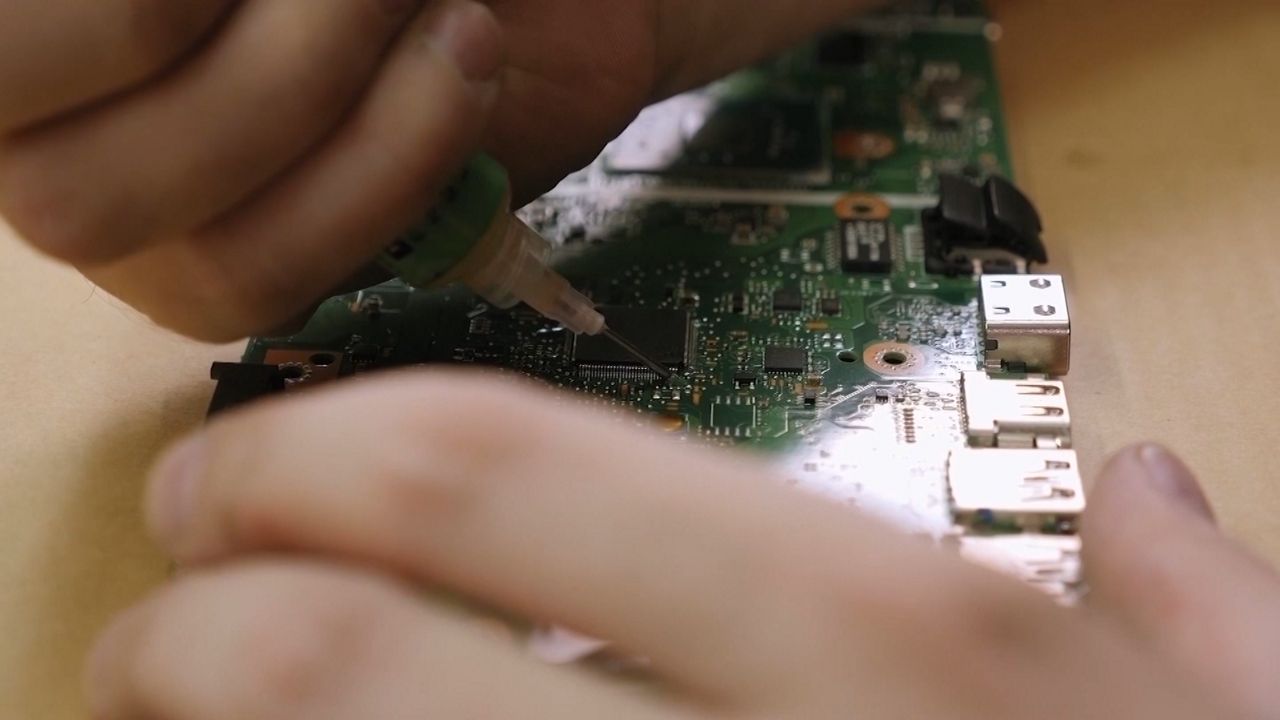WASHINGTON, D.C. — During the campaign President-elect Donald Trump harshly disparaged the CHIPS Act, a law enacted two years ago to fund the domestic production of computer semiconductor chips that are now largely made overseas. His criticism could cast doubt on the future of the projects funded by the legislation, a major accomplishment for President Joe Biden. It could also set up a potential clash in Congress from Ohio lawmakers and others whose districts stand to benefit from billions of dollars in CHIPS funding.
What You Need To Know
- President-elect Donald Trump has criticized the CHIPS Act, casting doubt of the future of projects funded by the legislation
- Some GOP lawmakers support Trump's cost-cutting efforts but still stand behind CHIPS Act funding
- The Biden administration last month finalized a $7.86 billion grant for Intel to build semiconductor plants, including in Ohio
Before Trump takes office, the Biden administration is rushing to disburse CHIPS funds, last month finalizing a $7.86 billion grant for Intel.
The decision was criticized by Vivek Ramaswamy, the businessman Trump selected to lead DOGE, an unofficial advisory board tasked with regulating government spending.
Ramaswamy wrote on X,
“Wasteful subsidies under the IRA & CHIPS Act are being rapidly pushed out before Jan 20. DOGE will review every one of these 11th-hour gambits & recommend that Inspectors General scrutinize these last-minute contracts.”
In Congress, Republicans are lining up to support DOGE and its mission.
“I’m excited about the DOGE. I joined the DOGE Caucus last week as it was announced,” said Rep. Troy Balderson, R-Ohio. “This is something that we haven’t done for a long time, and there’s nothing wrong with this. There’s nothing wrong with looking at burdensome things that we have in place.”
Yet Balderson supports funds from the CHIPS Act getting quickly appropriated to build the Intel plant in New Albany, Ohio, which is in his district.
“Falling further behind in chip manufacturing is a national security risk that we just can’t afford. We must ensure that these funds are quickly invested to address the serious business of American competitiveness,” he wrote on X.
Even Rep. Jim Jordan, R-Ohio, a staunch Trump ally and one of the four Ohio Republicans to vote against the CHIPS Act, is not calling to cut CHIPS funding.
“I don’t think there’s a movement to change that legislation,” Jordan told Spectrum News, adding that he did not regret voting against the bill.
Though the Biden Commerce Department has announced the grant money for the Intel project, the new Trump administration could try to get some of it back through complicated clawback provisions in the CHIPS Act.
Even with that funding in place, Intel is struggling to deliver on its promise of 3,000 permanent jobs in Ohio. Last month, the company delayed the start of operations at the Ohio plant from 2025 to 2030.



